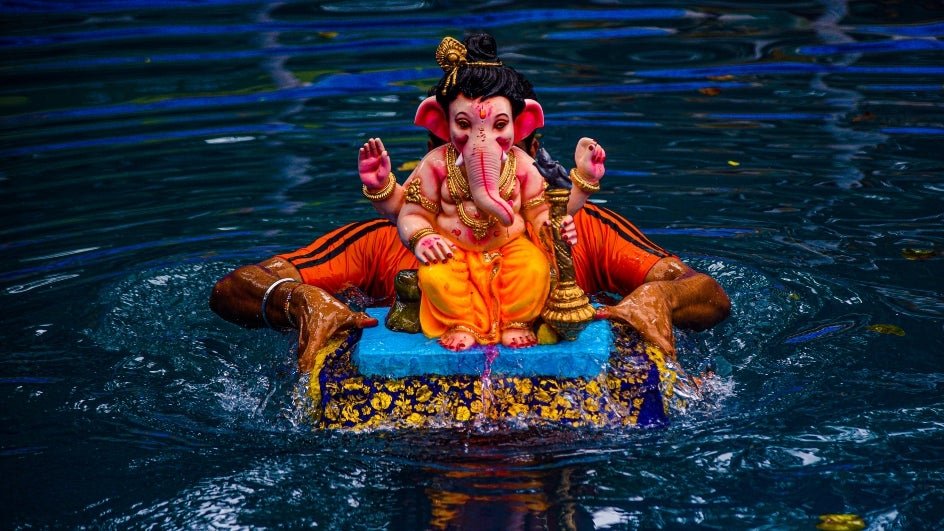The Madras High Court recently ruled on the Ganpati Visarjan, emphasizing that while worship rights are essential, they must be balanced with environmental concerns and procedural compliance.
In a landmark ruling Madurai Bench of the Madras High Court, while addressing a batch of petitions concerning the installation and immersion of Vinayagar idols, reaffirmed the fundamental right to worship under Article 25 of the Constitution but categorically held that “freedom of religion cannot override environmental laws or public order.”
The Court declared, “Worship, both individual and collective, is not a matter of State concession but a matter of constitutional recognition,” but cautioned that this right “must be exercised with responsibility and foresight.” It drew a sharp line between genuine devotion and actions that disrupt public peace or degrade natural resources.
Citing the 2020 guidelines of the Central Pollution Control Board, the Court observed, “The use of toxic chemical dyes, synthetic paints, enamel paints, and non-biodegradable materials such as plastics and thermocol is strictly banned.” It condemned the immersion of idols containing banned materials as a violation not just of pollution control regulations, but of the constitutional duty to protect the environment under Article 48-A and Article 51A(g).
Justice Pugalendhi was unsparing in calling out the motives behind many of the petitions. “Most of the present requests appear to be driven by ego clashes and a desire to assert monetary influence, rather than genuine religious intent,” he wrote. “God is not a tool for rivalry; He is a symbol of unity, peace, and spiritual elevation.”
The Court remarked with disapproval, “Vinayagar temples at street corners remain neglected throughout the year, but elaborate efforts are made to install giant idols during the festival.” It urged devotees to reflect on this paradox and recognize that “true devotion lies not in grandeur but in consistent reverence.”
The Court repeatedly expressed dismay over the last-minute nature of the applications and responses. “Almost all applications were filed at the last minute, and the officials responded equally late,” it said, noting that this denied the Court an opportunity to properly adjudicate many petitions.

